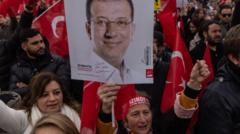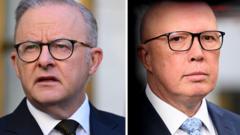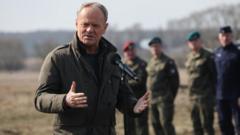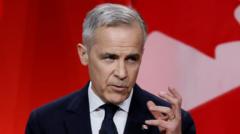Former Prime Minister Ali Laarayedh claims political motivations behind his sentencing amid a clampdown on dissent
Tunisia Sentences Former Prime Minister to 34 Years on Terrorism Charges
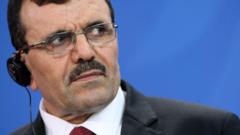
Tunisia Sentences Former Prime Minister to 34 Years on Terrorism Charges
Ali Laarayedh's conviction raises concerns over political persecution in Tunisia
In a significant judicial move, Tunisian authorities have sentenced former Prime Minister Ali Laarayedh to an extensive 34-year prison term following his conviction on multiple terrorism charges. Laarayedh, aged 69, has emerged as a vocal critic of President Kais Saied and serves as the leader of the Ennahdha party, the most prominent political party advocating for Islamist principles within the nation.
The charges against Laarayedh, along with seven co-defendants, include allegations of establishing a terrorist network and allegedly facilitating the travel of young Tunisians to join Islamist factions fighting in Iraq and Syria. In a letter addressed to the court's prosecutor, Laarayedh maintained his innocence, asserting that he is merely a victim caught in a politically charged scenario.
His sentencing comes amidst a broader crackdown on political dissent in Tunisia, with over 40 prominent figures, including diplomats, lawyers, and journalists, reportedly imprisoned in recent weeks. Human rights organizations decry these prosecutions as indicative of President Saied's authoritarian influence over the judiciary, especially following his decision to dissolve parliament in 2021 and take ruling by decree to a new level.
Since his election six years prior, Saied has enacted constitutional changes that significantly bolster his power, leading many to perceive his administration as reversing the democratic progress achieved during the Arab Spring—a series of uprisings that began in Tunisia in 2011 following the self-immolation of Mohamed Bouazizi in protest of systemic corruption. These events sparked widespread demonstrations that ultimately led to a wave of change throughout the region.
However, numerous citizens express disappointment over the perceived erosion of their democratic hopes, condemning Saied's governance and the silencing of dissenting voices such as Laarayedh's. In stark contrast, the president continues to dismiss these criticisms, framing his actions as necessary measures against perceived "traitors" and asserting claims of external interference undermining his rule.
This high-profile case epitomizes the tense political atmosphere in Tunisia as the nation grapples with its democratic future against a backdrop of growing authoritarianism.
The charges against Laarayedh, along with seven co-defendants, include allegations of establishing a terrorist network and allegedly facilitating the travel of young Tunisians to join Islamist factions fighting in Iraq and Syria. In a letter addressed to the court's prosecutor, Laarayedh maintained his innocence, asserting that he is merely a victim caught in a politically charged scenario.
His sentencing comes amidst a broader crackdown on political dissent in Tunisia, with over 40 prominent figures, including diplomats, lawyers, and journalists, reportedly imprisoned in recent weeks. Human rights organizations decry these prosecutions as indicative of President Saied's authoritarian influence over the judiciary, especially following his decision to dissolve parliament in 2021 and take ruling by decree to a new level.
Since his election six years prior, Saied has enacted constitutional changes that significantly bolster his power, leading many to perceive his administration as reversing the democratic progress achieved during the Arab Spring—a series of uprisings that began in Tunisia in 2011 following the self-immolation of Mohamed Bouazizi in protest of systemic corruption. These events sparked widespread demonstrations that ultimately led to a wave of change throughout the region.
However, numerous citizens express disappointment over the perceived erosion of their democratic hopes, condemning Saied's governance and the silencing of dissenting voices such as Laarayedh's. In stark contrast, the president continues to dismiss these criticisms, framing his actions as necessary measures against perceived "traitors" and asserting claims of external interference undermining his rule.
This high-profile case epitomizes the tense political atmosphere in Tunisia as the nation grapples with its democratic future against a backdrop of growing authoritarianism.








